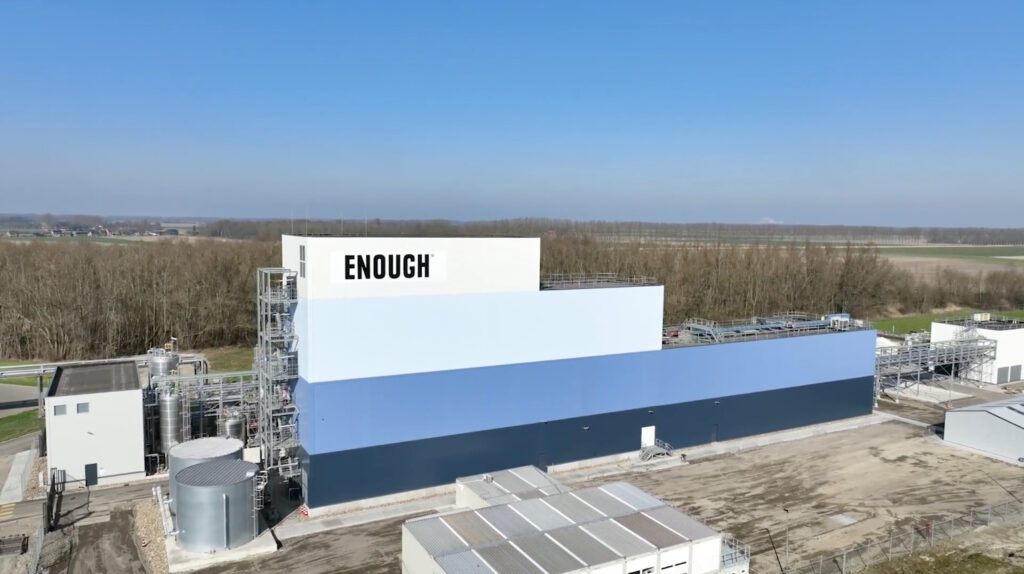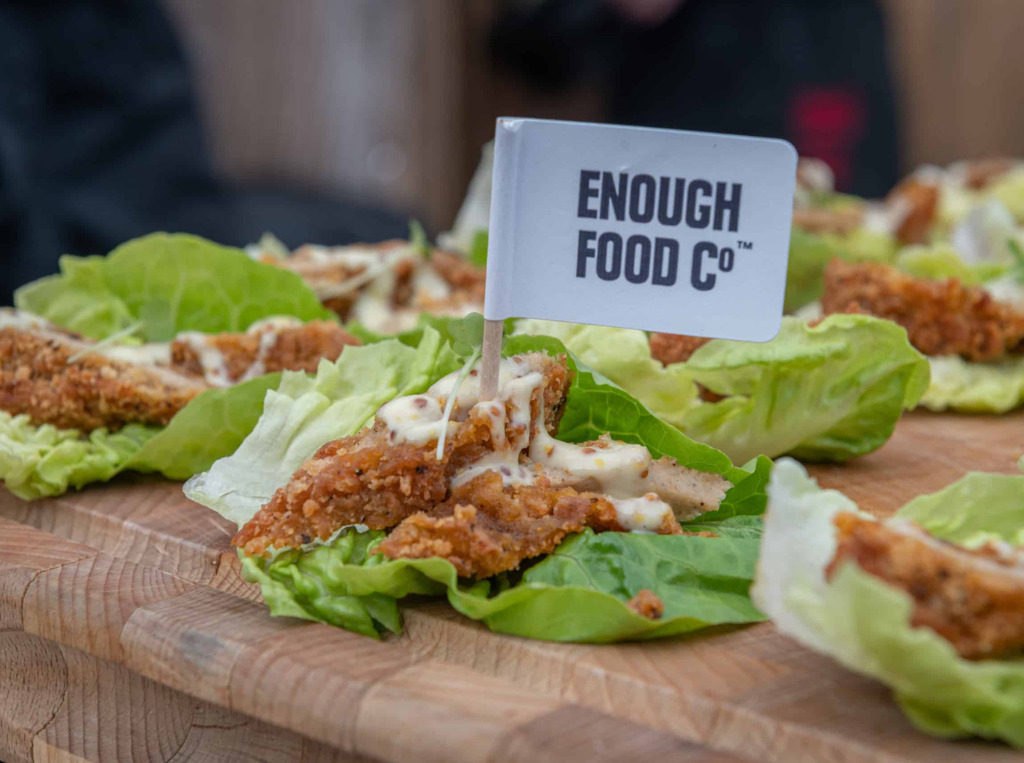Mycoprotein Startup Enough Raises €40M to Produce One Cow’s Worth of Protein Every 2 Minutes by 2027
4 Mins Read
Scottish-Dutch food tech company Enough has raised €40M in Series C funding to accelerate the production of its mycoprotein product, Abunda, which is used in plant-based alternatives like chicken breast, mince and dairy. The brand aims to scale up to produce enough protein to replace five million cows or one billion chickens by 2032.
Enough’s investment round was led by World Fund, Europe’s leading climate VC firm, and CPT Capital (an early investor in Impossible Foods and Beyond Meat).
Other previous investors, including AXA IM Alts through the Axa Impact Fund, HAL Investments through 280ppm, Onassis Group through Olympic Investments Inc, Tailored Solutions and Scottish Enterprise also followed on.
A mycoprotein powerhouse

Founded in 2015, Enough’s mycoprotein product, Abunda, is made from the same fungi as Quorn’s via biomass fermentation. The fungi are fermented using sugars from sustainably sourced grains as renewable feedstocks, supplied by a Cargill starch plant located next to Enough’s recently opened alt-protein facility in Sas van Gent, Netherlands.
The grains are fermented in a similar process to wine and beer production, Enough claims its signature mycoprotein is high in protein and fibre, contains all nine essential amino acids, and boasts a neutral flavour and meat-like texture to create plant-based meat, fish and dairy alternatives. It adds that Abunda is 15 times more efficient than beef thanks to its zero-waste, circular production process, which uses 93% less water, 97% less feed and has 97% fewer carbon emissions than beef. This also makes the alt-protein more affordable to produce.
Enough’s manufacturing facility will initially produce 10,000 metric tonnes of Abunda a year, and plans to scale up to 60,000 metric tonnes annually by 2027, which will be the equivalent of one cow’s worth of protein every two minutes. By 2032, the brand aims to up production to one million metric tonnes per year, which equates to replacing five million cows or over a billion chickens.
Launching into a fluctuating market

Enough says it is the leading player to produce sustainable protein at such a large scale, enabling it to partner with brands and white-label manufacturers serving retail, foodservice and fast-food companies expanding their plant-based offerings. In 2021, it partnered with Belgium’s Peace of Meat to launch hybrid meat products made with cultivated fats. The brand adds that European poultry processor Plukon Food Group, which is developing alt-chicken and -meat products to complement its conventional range, is “very enthusiastic about getting started” with Enough’s mycoprotein raw material.
According to AgFunderNews, the company is already in conversations with brands to use its alt-protein in plant-based meats, with over 30 customers sampling its products. Enough aims to see Abunda-derived offerings hit shelves by the end of the year. The ingredient will be tested by Unilever in its The Vegetarian Butcher line, as well as brands supplying to UK supermarket M&S.
Enough will be entering an overcrowded alt-meat market that has been hit by a fall in sales and fluctuating consumer demand. This has led to instances like plant-based meat giant Beyond Meat reporting a 30% drop in sales last quarter after months of continuous decline, and vegan chicken nugget startup Nowadays ceasing operations.
Similarly, in July, California’s Tattooed Chef, whose meals included vegan meat alternatives, filed for bankruptcy – a month after British producer Plant & Bean fell into administration. And in January, Canadian vegan butcher and cheesemonger The Very Good Food Company went into receivership. In June, Meatless Farm faced a similar fate after making its entire team redundant and preparing for bankruptcy, before its UK business was rescued by fellow British plant-based meat manufacturer VFC.
An affordable alt-protein

But there have been signs of a recovery. Despite the annual sales drop, Beyond’s quarterly revenue was up by 11% and is projecting a year-on-year topline growth in the last two quarters of 2023. And crucially, cost is an important factor, with a 2023 Kantar report suggests that while plant-based food brands have seen a 10% drop in sales, private-label supermarket offerings have grown by 14% in the last year.
Enough’s latest financing, which brings its total capital raised to €95M, will help it scale its mycoprotein production and reach price parity more quickly. “ENOUGH has made great strides in the past few years to launch our new factory in the Netherlands and scale up to work with customers across the UK and Europe. With this new funding, we will accelerate that growth,” said Enough co-founder and CEO Jim Laird.
He added: “The alternative protein market is a multi-billion-dollar opportunity, and the ethical and environmental reasons to embrace non-animal protein sources are more pressing than ever.”
Craig Douglas, founding partner at World Fund, said: “[Enough] is tackling crucial bottlenecks in the creation of sustainable protein, whilst using fewer resources and maintaining a zero-waste process, which is enabling Enough to have a lower carbon footprint compared to other plant-based protein sources, whilst producing at scale and providing supply security to a growing market.’



